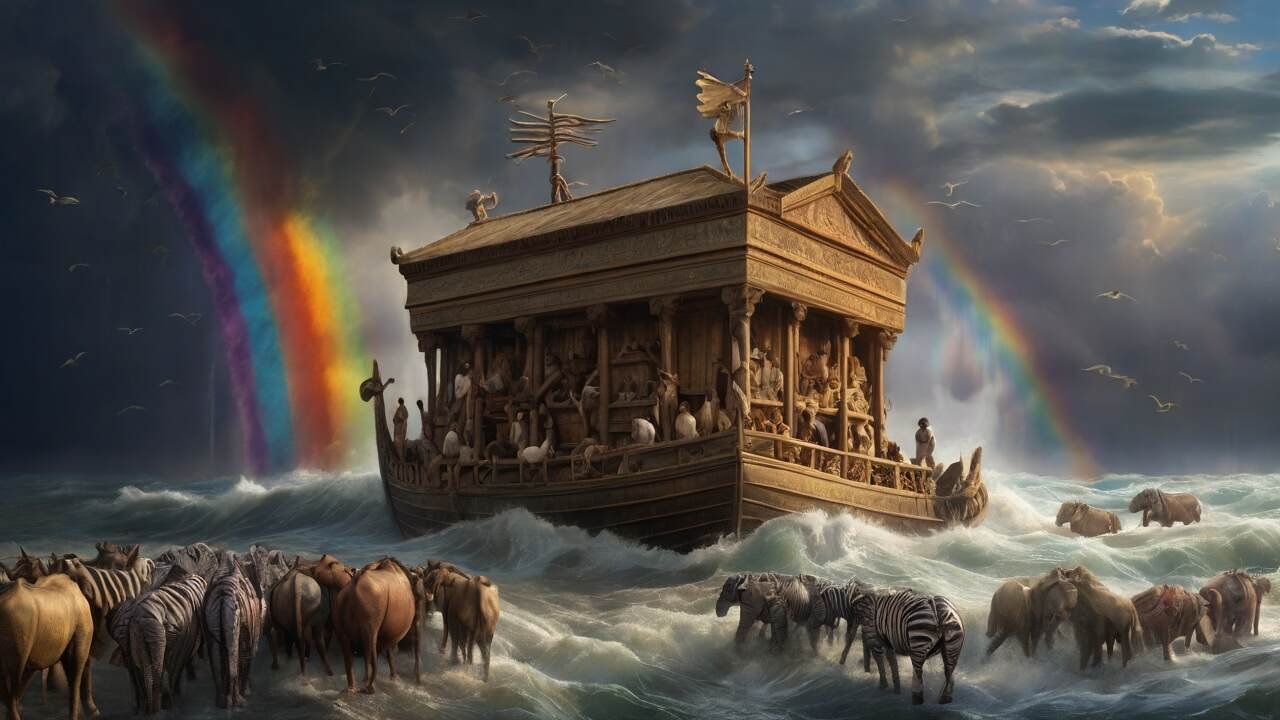Christians have long grappled with the intricate relationship between human free will and God’s divine sovereignty. While some theological traditions emphasize God’s absolute control, others accentuate human agency and responsibility. This article explores the diverse perspectives within the Christian understanding of free will as a divine gift, examining the nuances of theological compatibility, sourcehood, intellectualism, and voluntarism.
Key Takeaways
- Christians have varying perspectives on the interplay between free will and divine sovereignty.
- Reformed theology and Arminian thought offer contrasting views on the compatibility of human agency and God’s control.
- Concepts like sourcehood, intellectualism, and voluntarism shape the theological understanding of free will.
- The Christian perspective on free will is shaped by the balance between human responsibility and God’s grace.
- Exploring these diverse theological perspectives provides a deeper understanding of the complex nature of free will as a divine gift.
Understanding Free Will and Divine Sovereignty
The Christian theological debate around free will has deep roots in ancient Greek and Roman philosophy. The central issue revolves around the compatibility of human moral responsibility with beliefs about God’s sovereignty, nature, and the structure of the human mind.
Theological Compatibility Problems
Theological compatibility problems arise when beliefs about God’s control, nature’s determinism, or psychological defects seem to undermine the agent’s ability to control their actions. Philosophers and theologians have grappled with questions of sourcehood, intellectualism, and voluntarism in their attempts to reconcile divine sovereignty with human free will.
Sourcehood, Intellectualism, and Voluntarism
The concept of sourcehood addresses whether an agent is the ultimate source of their actions or whether those actions are predetermined by factors beyond their control. Intellectualism and voluntarism explore the relationship between reason, will, and moral responsibility, debating the extent to which our actions are guided by rational deliberation or uncontrolled desires.
These philosophical and theological debates have profound implications for understanding the nature of free will, moral responsibility, fate, and the role of God’s providence in the philosophy of mind.
“The problem of reconciling human free will with divine sovereignty and foreknowledge is both philosophically challenging and theologically crucial.”
How do Christians understand the concept of free will?
Christians inherit a fundamental tension from the biblical scriptures—the vital importance of human moral responsibility and the belief in God’s providential sovereignty over all of creation. This poses a significant challenge in reconciling these seemingly conflicting ideas. The concept of ‘free will’ is often defined as the agent’s capacity to control their actions through reasoned decisions and choices, as well as their ability to exercise self-control over emotions, desires, and intentions.
However, the biblical material does not provide a systematic treatment of free will, leading to diverse theological perspectives on this issue. Some Christian thinkers emphasize the autonomous and self-determining nature of the human will, while others stress the determining role of divine grace and providence. This diversity of views reflects the complex and multifaceted nature of the Christian understanding of free will.
Biblical Perspectives on Free Will
The Bible presents a range of perspectives on the nature of human agency and moral responsibility. On the one hand, numerous passages underscore the significance of human free choice and the call to exercise self-control and moral responsibility. For example, the book of Deuteronomy exhorts the Israelites to “choose life” (Deuteronomy 30:19), implying a genuine capacity for reasoned decision-making.
- The prophet Jeremiah declares, “The soul who sins is the one who will die” (Ezekiel 18:4), suggesting individual culpability for moral actions.
- The Apostle Paul encourages the Philippians to “work out your own salvation with fear and trembling” (Philippians 2:12), underscoring the role of human agency in the process of sanctification.
On the other hand, other biblical passages emphasize God’s sovereign control over human affairs and the ultimately dependent nature of the human will. The Psalmist proclaims, “The king’s heart is a stream of water in the hand of the Lord; he turns it wherever he will” (Proverbs 21:1), suggesting divine determinism over human decision-making.
This tension between human free will and divine sovereignty has been a source of ongoing theological reflection and debate within the Christian tradition.
| Aspect | Biblical Perspective |
|---|---|
| Human Free Will | Emphasis on human moral responsibility, self-control, and reasoned decision-making. |
| Divine Sovereignty | Emphasis on God’s ultimate control over human affairs and the dependent nature of the human will. |
The Christian understanding of free will must grapple with these complex and sometimes seemingly contradictory biblical perspectives, seeking to reconcile the vital importance of human moral responsibility with the recognition of God’s providential sovereignty over all creation.
Divine Determinism and Theological Compatibilism
Within the realm of Christian theology, some traditions, such as Calvinism, have embraced the concept of divine determinism. This belief holds that God exercises complete sovereignty and control over the entire universe, including the actions and choices of individuals. However, this raises a challenging question: how can humans be held morally responsible for their decisions if their actions are ultimately determined by God’s providence?
This is where the doctrine of theological compatibilism comes into play. Compatibilists argue that individuals can indeed be genuinely free and morally responsible, even if their actions are ultimately determined by God’s providence. The key lies in the alignment between an individual’s own desires, reasons, and the divine plan.
According to this view, as long as a person’s choices align with their own will and reasons, they can be considered free and morally responsible, regardless of whether those choices were ultimately determined by God’s sovereign plan. This reconciles the belief in divine determinism with the concept of human moral accountability, allowing for a cohesive theological framework.
It’s important to note that the debate surrounding divine determinism and theological compatibilism has been an ongoing discussion within Christian theology, with various perspectives and nuances. As with many complex philosophical and theological concepts, there is room for further exploration and dialogue on this topic.

“The doctrine of divine determinism, when combined with the belief in human moral responsibility, gives rise to the philosophical and theological problem of reconciling these two seemingly contradictory concepts.”
Ultimately, the interplay between divine determinism and theological compatibilism highlights the depth and richness of Christian thought on the nature of free will, providence, and moral responsibility. As believers navigate these profound questions, they may find themselves drawn into a deeper understanding of the divine-human relationship and the complexities of the human condition.
Divine Openness and Theological Incompatibilism
In contrast to the concept of divine determinism and theological compatibilism, some Christian traditions, such as Arminian theology, embrace a view of divine openness. This perspective grants genuine free will to human beings, recognizing that God does not unilaterally determine their choices. Theological incompatibilists argue that divine foreknowledge and providential control are incompatible with genuine human free will and moral responsibility.
Foreknowledge, Providence, and Free Will
Incompatibilists emphasize the importance of human agency in matters of sin and grace, where individuals are held accountable for their choices, even if those choices are influenced by God’s grace. They believe that true free will is essential for meaningful human moral responsibility and that God’s foreknowledge and providential control would negate this, making us mere puppets in the divine plan.
Sin, Grace, and Free Will
Proponents of Arminian theology argue that God grants genuine free will to human beings, allowing them to respond to God’s grace and make choices that have real consequences. They emphasize the role of human agency in the process of salvation, where individuals are held accountable for their decisions, even though those decisions are influenced by God’s grace.
“God has granted us the freedom to choose, and with that freedom comes the responsibility to make wise and righteous decisions. We are not mere puppets in the divine plan, but rather partners with God in the unfolding of history.”
This perspective on divine openness and theological incompatibilism offers a nuanced understanding of the relationship between free will, sin, grace, and divine providence. It challenges the notion of absolute divine determinism and invites believers to engage more actively in their own spiritual journey.
Conclusion
The Christian understanding of free will as a divine gift has been a subject of profound theological discourse, with various perspectives seeking to reconcile the complexities of human agency and moral responsibility with beliefs about God’s sovereignty and control. While some traditions have embraced the concept of divine determinism and theological compatibilism, others have advocated for the idea of divine openness and theological incompatibilism.
Ultimately, the richness and diversity within Christian theology reflect the ongoing efforts to make sense of the intricate interplay between human free will and the divine. This multifaceted dialogue serves as a testament to the depth and nuance inherent in the Christian understanding of free will, a gift that empowers believers to navigate the delicate balance between their own agency and the sovereignty of the Almighty.
As we continue to explore and grapple with these timeless questions, the Christian community is challenged to embrace the complexity of this topic, recognizing that the answers may not always be neat or straightforward. By engaging in thoughtful and respectful discourse, believers can deepen their understanding of the intricate relationship between human free will and divine sovereignty, ultimately strengthening their faith and their ability to live in accordance with the teachings of Christ.
FAQ
How do Christians understand the concept of free will?
Christians have long grappled with the complex interplay between human free will and God’s divine sovereignty. While some theological traditions emphasize God’s absolute control, others accentuate human agency and responsibility. The Christian understanding of free will as a divine gift has been the subject of ongoing theological debate, with various perspectives seeking to reconcile human agency and moral responsibility with beliefs about God’s sovereignty and control.
What are the theological compatibility problems in understanding free will and divine sovereignty?
The central issue revolves around the compatibility of human moral responsibility with beliefs about God’s sovereignty, nature’s determinism, or psychological defects that seem to undermine the agent’s ability to control their actions. Philosophers and theologians have grappled with questions of sourcehood, intellectualism, and voluntarism in their attempts to reconcile divine sovereignty with human free will.
How do Christians reconcile the importance of human moral responsibility with the belief in God’s providential control?
Christians inherit two central motives from the scriptures: the importance of human moral responsibility and the belief in God’s providential control over creation. This poses challenges in reconciling these seemingly conflicting ideas. The concept of ‘free will’ is often defined as the agent’s capacity to control their actions through reasoned decisions and choices, as well as their ability to exercise self-control over emotions, desires, and intentions.
What is the Calvinist perspective on divine determinism and theological compatibilism?
Some Christian traditions, such as Calvinism, have embraced a view of divine determinism, wherein God exercises complete sovereignty and control over the universe, including human actions and choices. Theological compatibilism seeks to reconcile this belief in divine determinism with the idea of human moral responsibility. Compatibilists argue that individuals can be genuinely free and morally responsible even if their actions are ultimately determined by God’s providence, as long as their choices align with their own desires and reasons.
How do Arminian theologians understand divine openness and theological incompatibilism?
In contrast, other Christian traditions, such as Arminian theology, have embraced a view of divine openness, wherein God grants genuine free will to human beings and does not unilaterally determine their choices. Theological incompatibilists argue that divine foreknowledge and providential control are incompatible with genuine human free will and moral responsibility. They emphasize the importance of human agency in matters of sin, grace, and salvation, wherein individuals are held accountable for their choices, even if those choices are influenced by God’s grace.








